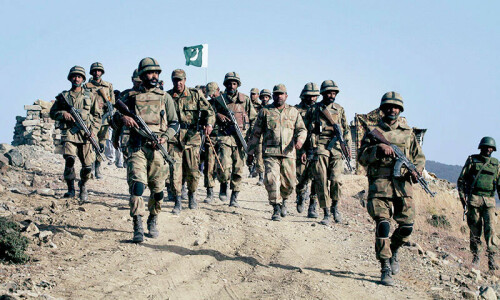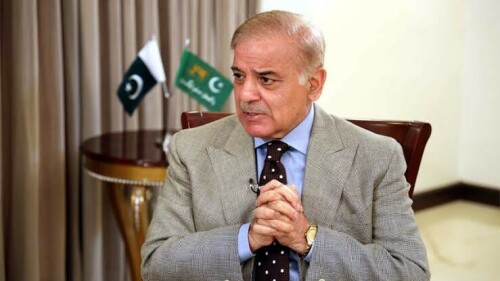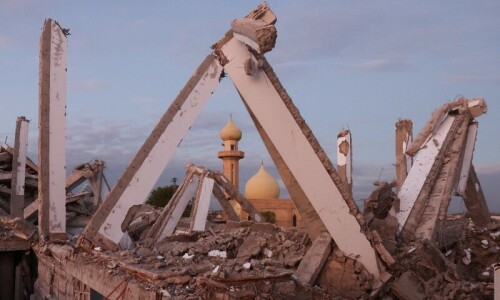ISLAMABAD: President Dr Arif Alvi on Thursday said extremism is not borne in a vacuum - poverty, inequality and lack of education and opportunity can make individuals vulnerable to extremist ideologies.
Speaking at a two-day National Vice Chancellors Peace Conference, which concluded on Thursday, he highlighted the importance of working on countering violent extremism, and praised the idea of collaboration between state institutions and civil society.
“As a nation, we must work towards addressing these underlying issues and provide a better future for our citizens,” he said. The president said academia had a greater responsibility to nurture traits of empathy, tolerance and coexistence among their students.
The conference was a joint venture by Shaoor Foundation for Education and Awareness (SFEA), National Counter Terrorism Authority (Nacta) and Higher Education Commission (HEC), and attended by 50 vice chancellors from across the country besides policy stakeholders.
The conference with the theme ‘Academic Discourse on Countering Extremism - The Way Forward’ was a significant milestone in the implementation of Peace, Advocacy and Community Engagement through Transformation (PACT) for tolerance project, which is built on a foundation of collaboration and cooperation between SFEA, Nacta, HEC Pakistan and other policy-level stakeholders.
Chairman of HEC Prof Dr Mukhtar Ahmed said that HEC has always encouraged and supported efforts for mutual benefit, including conflict resolution within universities. “It is our joint responsibility that universities are empowered and supported to create an enabling environment where difference of opinion is respected,” the HEC chief said. He urged vice chancellors to make use of policy recommendations for promotion of peace and tolerance at universities and the society at large.
Founder and chair person of Shaoor Foundation for Education and Awareness Syed Ali Hameed said: “We need a multi-sectoral approach to tackle the menace of extremism and intolerance.
“Shaoor Foundation has always focused on working with stakeholders and developing well informed solutions.”
Member of NACTA Mohammad Inkasar Khan shed light on the role of NACTA in contributing towards the state’s response to counter extremism and its alignment with PACT for Tolerance project. He said that this conference has beefed up efforts of engaging youth and enhancing their capacities to support peace and harmony in academic institutions.
Moreover, a letter of intent (LOI) between NACTA and HEC Pakistan, renewing their commitment towards partnering for the cause of peace, tolerance, and inclusivity in university campuses was also signed on the first day of the conference.
The report, ‘Findings and Recommendations for Peace and Tolerance at University Campuses’ has been developed with active engagement of more than 70 partner universities involved in the PACT for Tolerance project. The recommendations have been extracted from in-depth interviews, focus group discussions, and key informant interviews conducted with university administrators, faculty members, students, and policy stakeholders from all provinces of Pakistan.
In the concluding session of the conference, a joint declaration was also issued wherein vice chancellors announced their support and commitment towards outcomes of the conference as well as the policy recommendations developed and approved by VCs as a result of the three-year-long process.
Prof Dr Bushra Mirza, vice chancellor, Lahore College for Women University read out the declaration on behalf of the VCs.
Published in Dawn, June 9th, 2023












































Dear visitor, the comments section is undergoing an overhaul and will return soon.